speech-language pathology
Our speech-language pathology program helps children with speech, language, voice, and feeding challenges through personalized therapy.


why choose pediatric speech-language pathology at Dayton Children’s
Every child develops differently, and communication challenges can affect learning, social skills, and daily routines. Our program is fully focused on pediatric care, using child-friendly techniques and proven therapies that support progress at every stage of growth. Families are part of the process, ensuring strategies learned in therapy carry over into home and school life.
what is a speech-language disorder?
A speech disorder refers to a problem with the actual production of sounds, whereas a language disorder refers to a difficulty understanding or putting words together to communicate ideas.
speech disorders:
- Articulation: Trouble pronouncing sounds or words clearly
- Fluency: Stuttering or interruptions in speech flow
- Voice: Issues with pitch, volume, or vocal quality
- Feeding/Swallowing: Problems with drooling, eating, or swallowing
language disorders:
- Receptive: Difficulty understanding language
- Expressive: Trouble forming sentences, using vocabulary, or communicating socially
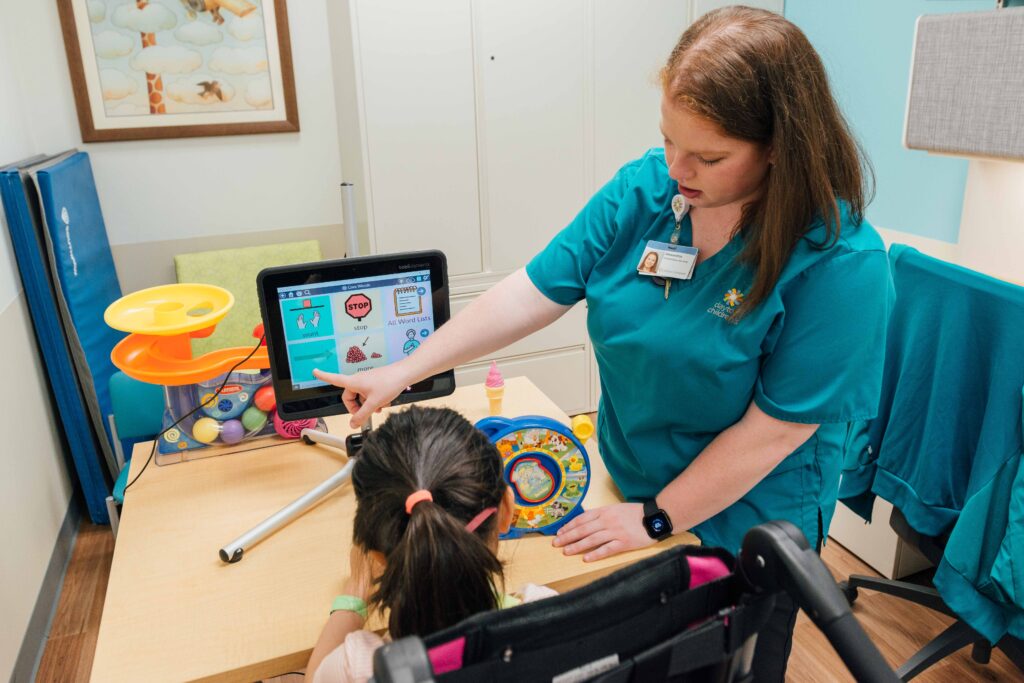
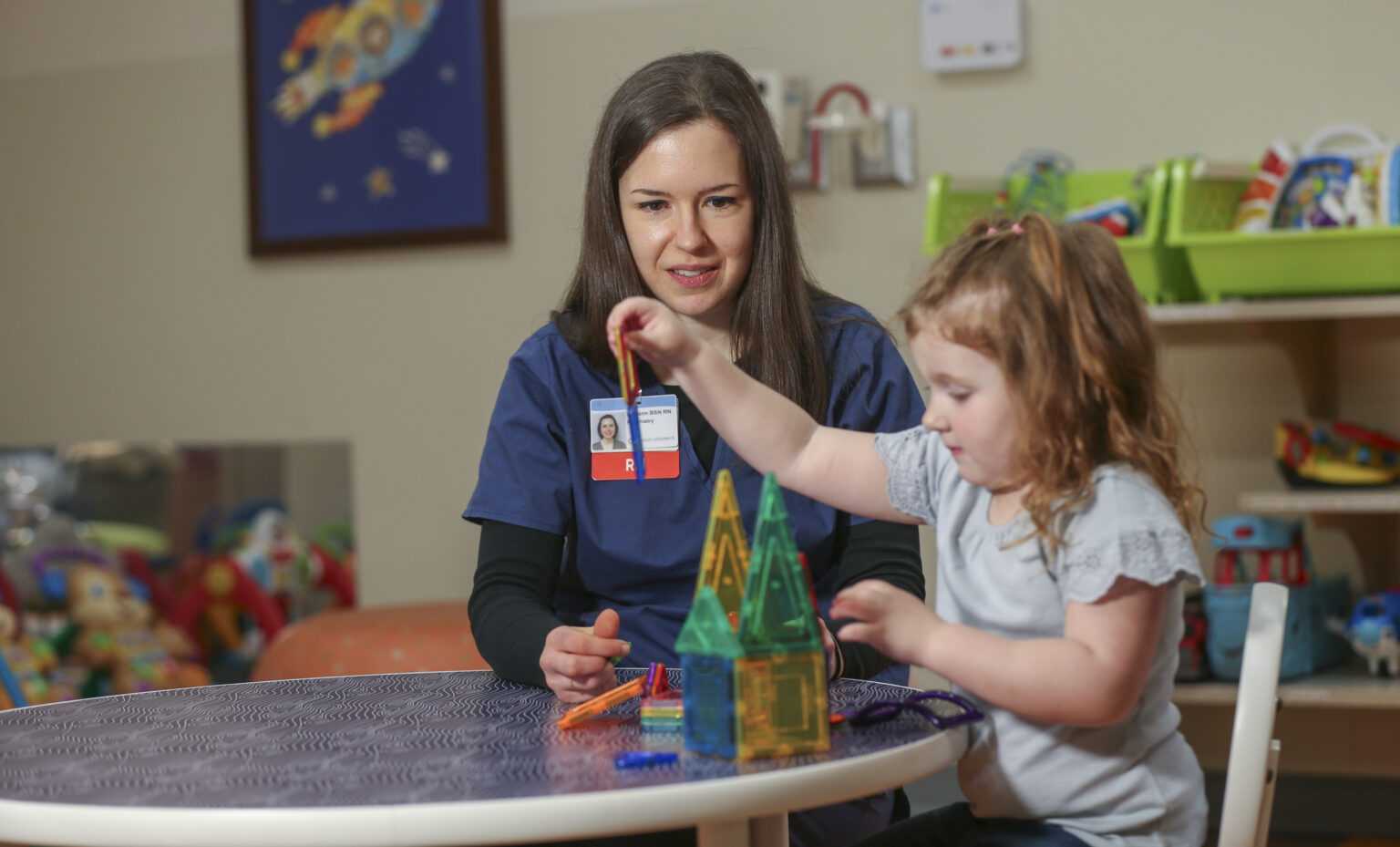
what causes speech-language disorders?
Speech and language disorders may be linked to:
- Brain injuries
- Autism spectrum disorders
- Cleft palate or craniofacial differences
- Hearing loss or cochlear implants
- Congenital conditions
how we treat speech-language disorders at Dayton Children’s
We use observation, standardized testing and advanced tools to assess your child’s needs for a variety of conditions. Then we create a personalized treatment plan focused on functional goals to help your child improve communication and thrive. Our top evaluations include:
We work closely with our pediatric ear, nose and throat (ENT) specialists on this evaluation. ENT will watch how the child swallows on videotape and then the speech therapist can evaluate their swallow function and determine next steps for treatment.
This is for children up to 21 years old who are unable to effectively communicate their needs, thoughts or feelings through speech due to cerebral palsy, traumatic brain injury, mental impairment or neurological dysfunction.
A speech and language pathologist works with one of our pediatric radiologists to evaluate oral and pharyngeal structure and function for swallowing. Suggestions for alterations in positioning, food presentation or diet are given to the physician after the study.
conditions we treat
Dayton Children’s speech-language pathology team supports treatment for a wide range of pediatric conditions, including:
- Apraxia
- Auditory processing disorder
- Feeding and swallowing disorders
- Language disorders
- Language-based reading disorders
- Myofunctional tongue thrust
- Speech sound disorders
- Stuttering (Fluency)
- Swallowing disorders
- Voice disorders
programs & clinics
ongoing speech therapy
For children who need continued speech therapy, our team works closely with families to set meaningful, functional goals using proven, evidence-based methods. These goals are adjusted as your child progresses through treatment.
If your child receives therapy at school, we can coordinate with the school therapist on the child’s goals.
We believe parents and guardians are essential partners in their child’s care. Therapists will provide guidance and resources to help you support your child’s speech goals at home between sessions.
Our therapists use a variety of strategies tailored to each child’s needs, including:
- Language intervention: Using play, books and conversation to build language skills.
- Articulation therapy: Teaching correct sound production through modeling and guided practice.
- Oral-motor and feeding therapy: Strengthening mouth muscles with exercises and working with food textures to improve eating and swallowing.
summer therapy sessions
We offer summer speech therapy programs for patients who are already receiving services at their school during the year. If you are interested in continuing your child’s therapy during the summer please speak with your primary care physician to receive a referral. We will perform an evaluation during each spring before beginning these services with your child during the summer.
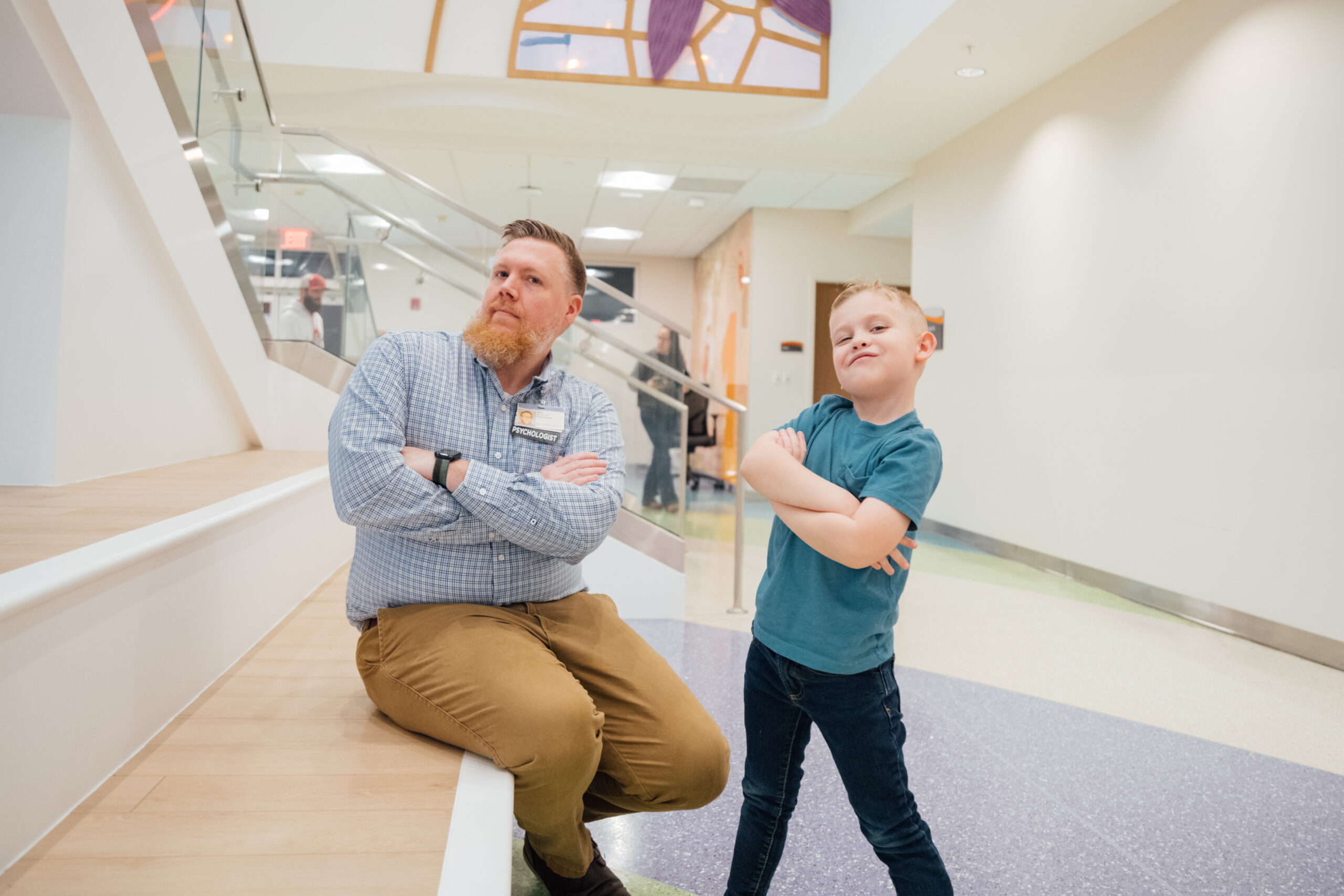
news and blogs
We’re here to support families with practical, easy-to-understand information about pediatric speech and language development. Explore expert tips, updates and real-life insights to help your child grow and thrive through every stage of care.
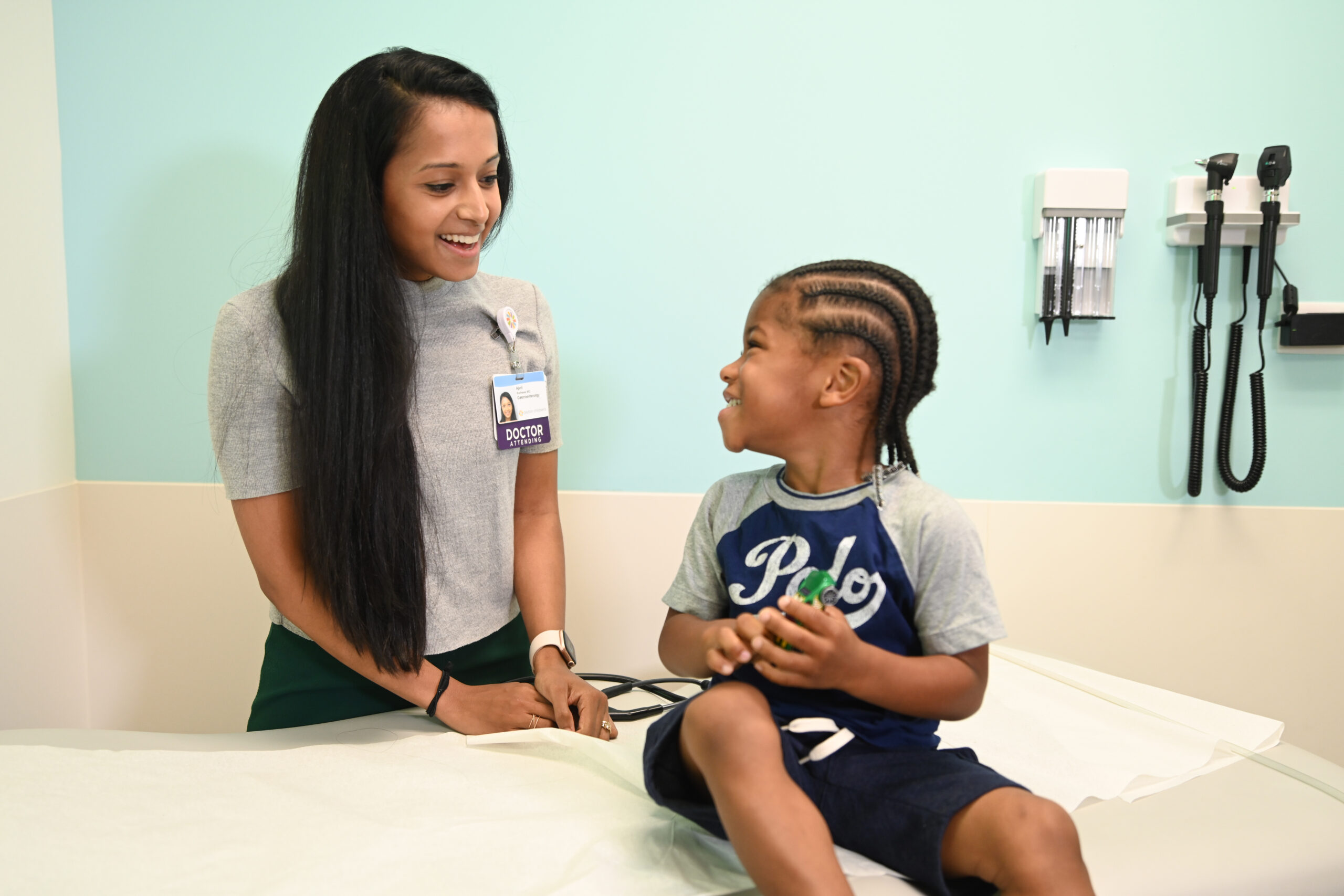
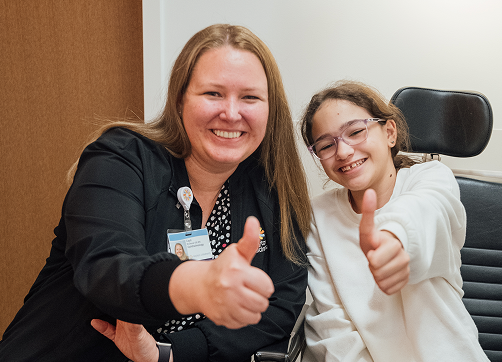
patient stories
Real families, real results. These stories show how our speech-language pathology team helps children overcome challenges and reach their goals. Explore how Dayton Children’s care has gone above and beyond for kids just like yours.
for your visit with speech-language pathology
before your visit
We’re committed to making your experience in speech-language therapy smooth and supportive. To begin speech-language therapy, your child will need a referral from a primary care provider or specialist. Once we receive the referral, our central scheduling team will contact you to set up an initial evaluation. We also recommend a hearing test through our audiology department for children referred for speech or language concerns.
what to expect during your visit
During your child’s first visit, both you and your child will take part in the evaluation. To help your child feel comfortable, we recommend arriving well-rested, fed and bringing a favorite toy or book.
The speech-language pathologist will begin by asking you questions about your child’s development and communication, such as:
- When did your child start crawling, walking, talking or eating?
- How do they interact with others at home?
- Is there a family history of speech, language or hearing issues?
- Does your child get frustrated when trying to communicate?
- What strategies have you tried at home?
- What are your main concerns?
The therapist will then evaluate your child using age-appropriate methods. This may include observing play or social interaction, or using formal tests for older children. The goal is to assess how well your child understands and uses language, and how clearly they speak.
find more resources for your visit
Get checklists, resources, and helpful tips for before, during, and after your visit to Dayton Children’s—so you know exactly what to expect.

speech-language pathology resources
Other organizations provide extensive educational materials for patients and families dealing with gastrointestinal issues. Our specialists encourage families to find support through the following websites and organizations.
- The American Speech and Hearing Association
- Learning to read with Starfall
- Communication and communication disorders
- ASHA: Speech and language development
- Apraxia of speech
- Super Duper learning materials
- Auditory Processing Disorder
- Ohio Speech-Language-Hearing Association
- Swallowing disorders
- Stuttering
- Speech and language disorders
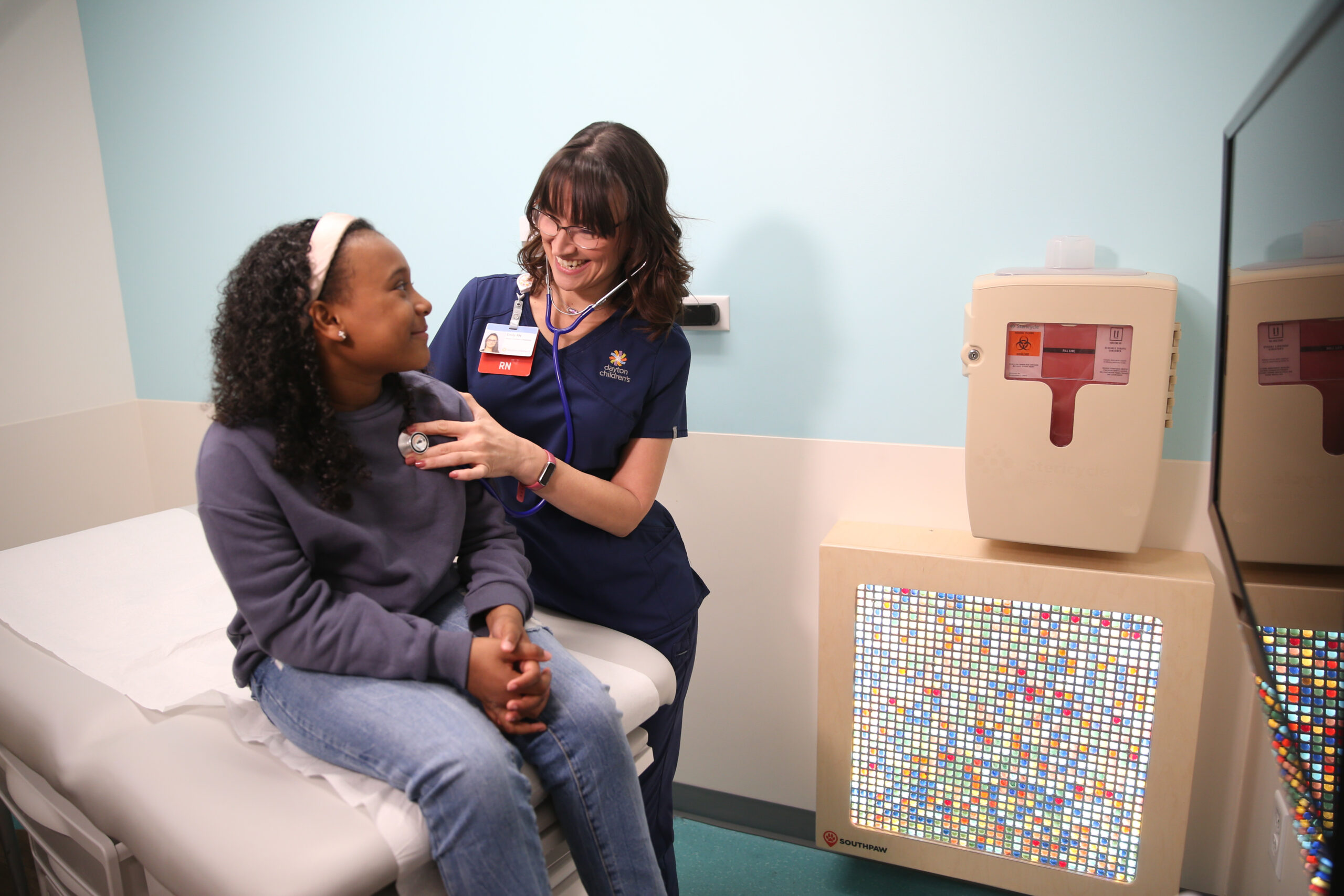
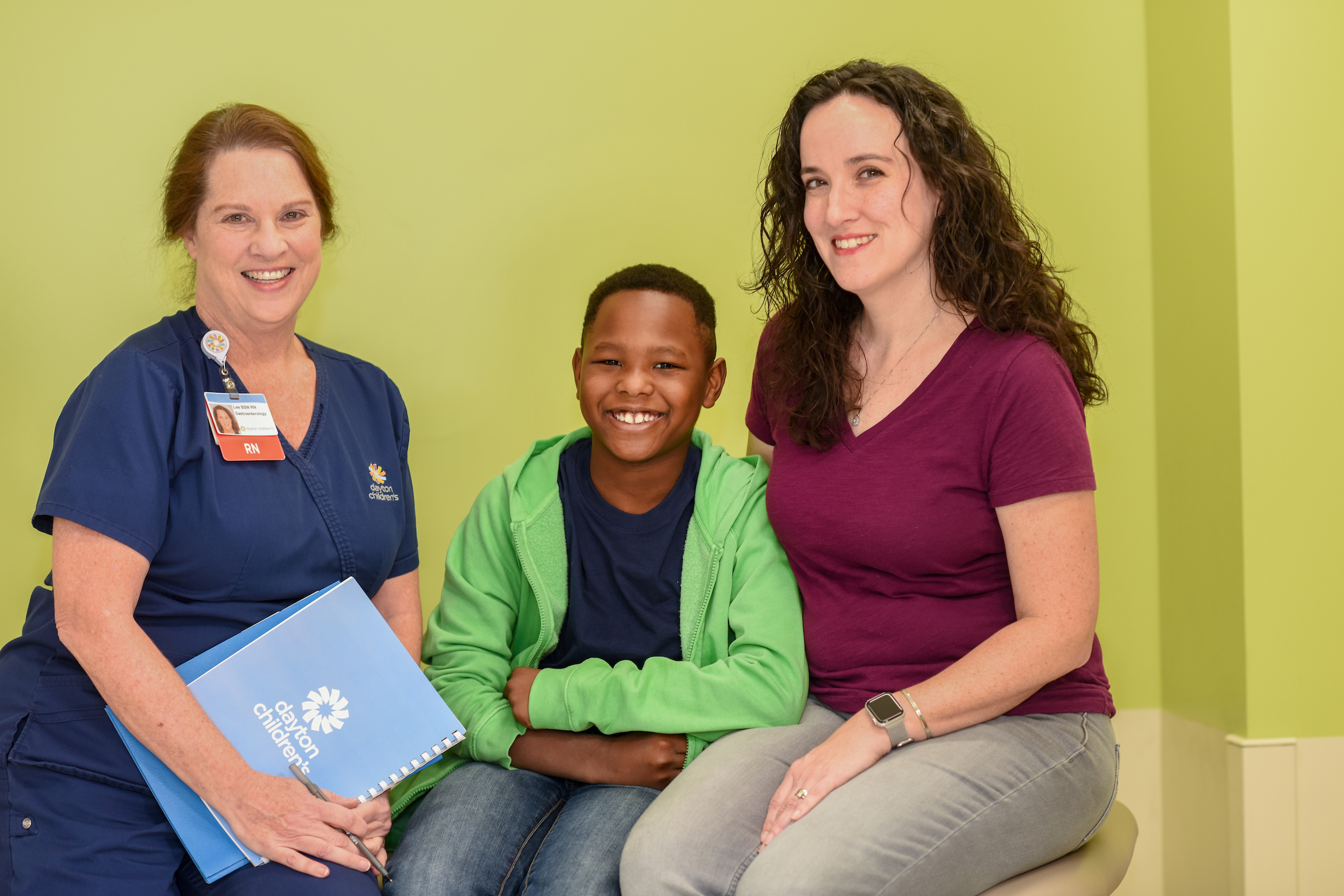
hours & locations
Our pediatric speech-language pathologists see patients at many Dayton Children’s locations
get speech-language care
If you’re concerned about your child’s speech, language, or feeding, talk with your primary care provider about a referral to Dayton Children’s. With a referral, our team can provide the specialized therapy your child needs to build confidence and thrive. For additional questions, call us at 937-641-4000.
